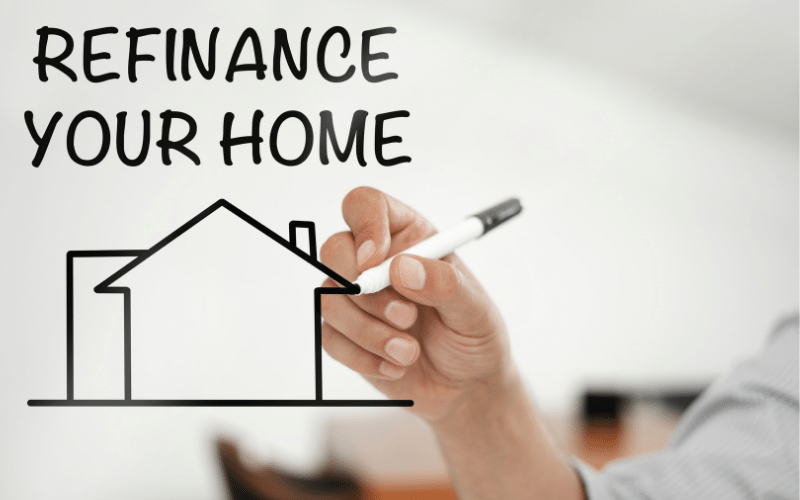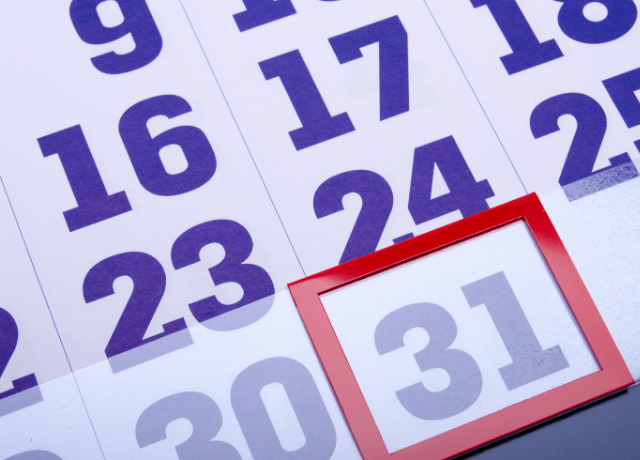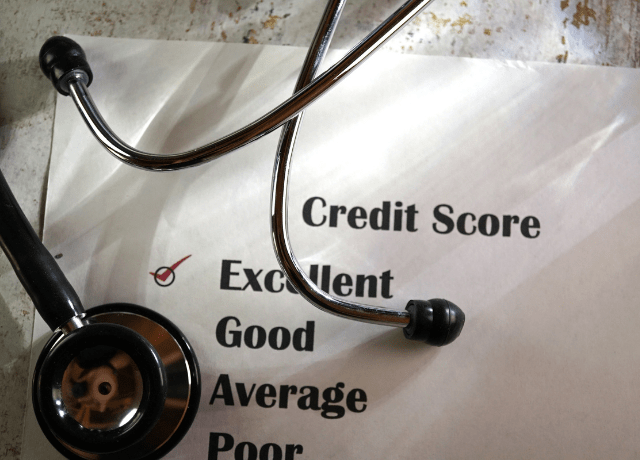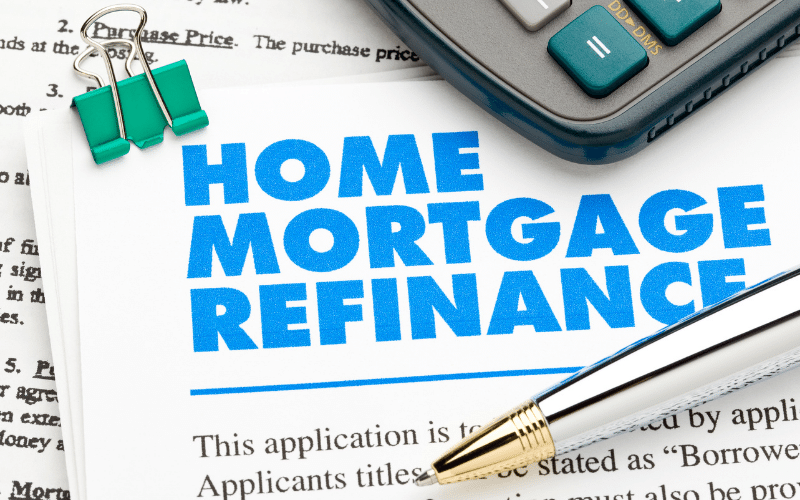
Mortgage Refinancing FAQ’s
1. When should you refinance your mortgage?
Although every situation is different, I would recommend refinancing your mortgage if: Current interest rates are at least 1 percent lower than your existing rate. You plan on staying in your home for another 5 years (give or take) You anticipate being approved for the refinance loan.
2. How does mortgage refinancing work?
Refinancing a mortgage involves taking out a new loan to pay off your original mortgage loan. In many cases, homeowners refinance to take advantage of lower market interest rates, cash out a portion of their equity, or to reduce their monthly payment with a longer repayment term.
3. Is it better to refinance with your current mortgage company?
If you refinance with your current lender, you may be able to get a break on certain closing costs, such as the appraisal fee. You may be able to negotiate better terms. You have likely already met with your lender and its loan officers, which could give you leverage when trying to refinance.
4. Is it worth refinancing to save $100 a month?
If you can recover your costs in two or three years, and you plan to stay in your home longer, refinancing could save you a bundle over time. Example: If you’ll save $100 a month on a $200,000 mortgage, and your cost to refinance is $3,200, you’ll break even in 32 months.
5. Does mortgage refinancing hurt your credit?
Refinancing can lower your credit score in a couple of different ways: Credit check: When you apply to refinance a loan, lenders will check your credit score and credit history. This is what’s known as a hard inquiry on your credit report—and it can temporarily cause your credit score to drop slightly.
6. Is it worth buying points on a refinance?
Even if you pay no points, every time you refinance, you will incur charges. In a low-rate environment, paying points to get the absolute best rate makes sense. You will never want to refinance that loan again. But when rates are higher, it would actually be better not to buy down the rate.
7. Does Refinancing start your loan over?
In the early years of your mortgage term, your payments are primarily going toward paying off interest. In the later years, you begin to pay off more principal than the interest, meaning you start to build up equity — the amount of your home that you actually own. Once you refinance, it’s like you’re starting over.
8. When mortgage refinancing is a bad idea?
One of the first reasons to avoid mortgage refinancing is that it takes too much time for you to recoup the new loan’s closing costs. This time is known as the break-even period or the number of months to reach the point when you start saving. At the end of the break-even period, you fully offset the costs of refinancing.
9. What is the downside of refinancing a mortgage?
Refinancing a mortgage can lower your monthly payment and reduce your interest rate. However, one downside of mortgage refinancing is that it restarts your loan term, and that can cost you more in the long run — even if you lower your interest rate.
10. Why do mortgage companies want you to refinance?
Your mortgage provider wants to refinance your mortgage for two reasons: 1. to make money, and 2. to avoid you leaving their servicing portfolio for another lender. Other lenders, however, will offer higher interest rates to their existing customers compared with the rates offered to new customers.
11. What are the dangers of refinancing?
Many consumers who refinance to consolidate debt end up growing new credit card balances that may be hard to repay. Homeowners who refinance can wind up paying more over time because of fees and closing costs, a longer loan term, or a higher interest rate that is tied to a “no-cost” mortgage.
12. Do you need a down payment when you refinance?
Refinancing your home loan usually doesn’t require any money from you. Many refinances include some cash back after the loan closes. Occasionally you’ll have to provide cash for the loan to close because of a lack of equity in the home or because you’re paying off debt to qualify.
13. Who are the worst mortgage lenders?
According to the CFPB, these five institutions received 60% of all mortgage-related complaints:
Bank of America
Wells Fargo
J.P. Morgan Chase
Citibank
14. How much equity do I need in my house to refinance?
A general rule of thumb is that you should have at least a 20 percent equity in the property. However, if your equity is less than 20 percent, and if you have a good credit rating, you may be able to refinance anyway.
15. How do you know if it’s worth it to refinance?
Consider mortgage refinancing if you can lower your interest rate by one-half to three-quarters of a percentage point — this can substantially lower your monthly payment. Make sure your total monthly savings offset the cost of refinancing.
16. What credit score is needed to refinance a house?
Credit requirements vary by lender and type of mortgage. In general, you’ll need a credit score of 620 or higher for a conventional mortgage refinance. Certain government programs require a credit score of 580 or have no minimum at all.
17. Do you lose equity if you refinance?
If you’re having trouble paying a mortgage, one option is to refinance. A refinance can simply mean trading your old loan for a new loan or cashing out some of the equity you already have in the property. If you do a “cash-out” refinance, however, your equity will drop.
18. What do I need to know before refinancing my house?
Know Your Credit Score
Know Your Debt-to-Income Ratio
The Costs of Refinancing
Rates vs. the Term
Mortgage Refinancing Points
Know Your Break-Even Point
Private Mortgage Insurance.
More…
19. Can I refinance with a 550 credit score?
Most banks and lenders require at least a 640 credit score. The magic credit score needed to get a mortgage, however, is not 580. Shockingly enough you can get a mortgage to purchase, or even do a Cash-Out Refinance, with a credit score as low as 550.
20. Does refinancing really save money?
If you refinance at a lower rate than the previous loan, you may save money if you continue making the same or higher payments. If you lower your payments too, however, you may pay higher total interest even though your rate is lower, because the debt is extended over a longer period.
21. How much income do I need to refinance?
Take a close look at your debt-to-income ratio. Mortgage lenders say that the total new monthly mortgage payment shouldn’t be more than 30% of your total gross monthly income. The total debt of your household should also fall under the 40% threshold when refinancing a mortgage.
22. Why does it take so long to refinance a mortgage?
Are you wondering why does it take so long to refinance a mortgage? The simple answer is because lending standards have tightened tremendously since the financial crisis. In order to get the lowest mortgage rate possible with the lowest amount of fees, you need a credit score of 800+.
23. What documents do you need to refinance?
Review this checklist to make sure you have all of the most likely required documents to apply for mortgage refinancing.
Pay Stubs. When applying for a home loan refinance, your lender will need proof of income. Tax Returns and W-2s and/or 1099s.
Credit Report.
Statements of Outstanding Debt.
Statement of Assets.
24. What happens to escrow money when you refinance?
If you’re paying off your mortgage loan by refinancing into a new loan, your escrow account balance might be eligible for a refund. Any funds remaining in your old mortgage loan’s escrow account will be refunded. If you refinance your mortgage loan with the same lender, your escrow account will remain intact.
25. How do I get equity without refinancing?
The home equity loan is similar in structure to your primary mortgage, this option could make sense if you don’t want to refinance that loan. Like a home equity loan, a HELOC (Home Equity Line of Credit) also lets you borrow against the equity in your home.
26. Is a cash-out refi taxable?
A cash-out refinance loan essentially turns some of the home equity you’ve built up into cash. It does this by refinancing your remaining mortgage balance to a new, larger loan and giving you the difference. You do not have to pay income taxes on the money you get through a cash-out refinance.
27. How much can I afford for a house if I make 60000 a year?
The usual rule of thumb is that you can afford a mortgage two to 2.5 times your annual income. That’s a $120,000 to $150,000 mortgage at $60,000. You also have to be able to afford the monthly mortgage payments.
28. Can you walk away from a refinance?
Under the Federal Truth in Lending Act, borrowers who refinance a loan on their primary residence with a lender other than their current lender can cancel the deal at no cost to themselves within 3 days of closing. The law does not provide a right of rescission to borrowers who refinance with their current lender.
29. Can I buy a house if I haven’t filed my taxes?
While you may not need to provide tax returns you still must file your returns and have them IRS validated. Not providing tax returns for getting a mortgage is not a recipe for granting a loan to a consumer who has not filed a tax return. This of course is based on the annual amount of your taxable income.
30. How long does underwriting take for a refinance?
Underwriting — The process by which mortgage lenders verify your assets and check your credit scores and tax returns before you get a home loan can take as little as two to three days. Typically, though, it takes over a week for a loan officer or lender to complete.
31. How many mortgage payments do you skip when you refinance?
Two mortgage payments. In order to skip two mortgage payments, you’d need to close your refinance loan sometime prior to the 15th of the month before the payment on the old mortgage is due (using the grace period to delay and avoid payment).
32. How does refinancing home affect taxes?
Something to keep in mind is that refinancing your mortgage can significantly reduce your total tax deductions. Refinancing to a lower mortgage rate means you’ll be paying less interest, which means you’ll have less mortgage interest to deduct when tax time comes around. The difference can be substantial.
33. Can I deduct mortgage interest if I refinance?
You could deduct the full amount of interest you pay on your loan in the last year if you did a standard refinance on a primary or secondary residence. You can only deduct 100% of your interest if you take a cash-out refinance, particularly if you use the money for a capital home improvement.
34. How do I know how much equity I have in my home?
You can figure out how much equity you have in your home by subtracting the amount you owe on all loans secured by your house from its appraised value. For example, homeowner Caroline owes $140,000 on a mortgage for her home, which was recently appraised at $400,000. Her home equity is $260,000.
35. What is the best day to close on a refinance?
 The best day to close a home purchase, or a mortgage refinance, is on the last business day of the month, unless it falls on a Monday. Then you should close on the preceding Friday, so you don’t have to pay interest over a weekend.
The best day to close a home purchase, or a mortgage refinance, is on the last business day of the month, unless it falls on a Monday. Then you should close on the preceding Friday, so you don’t have to pay interest over a weekend.
36. Should I shop around for a refinance?
If you’re considering refinancing your mortgage, you are likely eager to find the lowest mortgage refinance rates. But before you start shopping around for the lowest rates, experts say you should establish your objectives and prepare your finances to improve your chances of qualifying for the lowest interest rate.
37. Who pays the appraisal fee refinance?
Appraisal fees are included in closing costs paid by the borrower. These fees can range between $300 and $450 or more and can depend on the size and location of your home.
38. What part of a refinance is tax-deductible?
Refinancing your home mortgage at a lower interest rate can save you a significant amount of money each month. However, you can also save some money on your taxes by deducting some of the costs you incur during the refinance. Deductible costs include mortgage interest, points, and property taxes paid at closing.
39. Will property taxes go up if I refinance?
Tax assessed values are only used by tax collectors. The sale of a property can trigger a tax assessment in some places, including California. However, a refinance loan is not a sale because the property is not changing hands. So, refinancing your mortgage loan won’t cause your property taxes to change.
40. Does refinancing hurt your credit score?
 Refinancing can lower your credit score in a couple of different ways: Credit check: When you apply to refinance a loan, lenders will check your credit score and credit history. This is what’s known as a hard inquiry on your credit report, and it can temporarily cause your credit score to drop slightly.
Refinancing can lower your credit score in a couple of different ways: Credit check: When you apply to refinance a loan, lenders will check your credit score and credit history. This is what’s known as a hard inquiry on your credit report, and it can temporarily cause your credit score to drop slightly.
41. Can I write off points on a refinance?
You can deduct points paid for refinancing generally only over the life of the new mortgage. You can deduct the rest of the points over the life of the loan. Points charged for specific services, such as preparation costs for a mortgage note, appraisal fees, or notary fees, and interest can’t be deducted.
42. How do I know if my refinance is worth it?
Figure out how long it may take for your refinance to pay for itself. To do this, divide your mortgage closing costs by the monthly savings your new mortgage will get you. If you’re paying $5,000 in closing costs but you’ll save $200 per month as a result of refinancing, it will take you 25 months to break even.
43. Do you lose equity when you refinance?
Some lenders allow you to roll your closing costs into a straight refinance loan. When this happens, you actually cash in some of your equity to cover these costs. Therefore, your level of equity in your home actually decreases as a result of the transaction.
44. How can I avoid mortgage refinancing fees?
Ask for a No-Closing Cost Refinance This is called a no-closing cost refinance. While you won’t have to bring money to the table when closing on the new loan, it may cost you more in the long run. In order to waive the closing costs, the lender usually charges a higher interest rate over the entire length of the loan.
45. How do I prepare my home for an appraisal to refinance?
How to Prepare Your Home for an Appraisal When Refinancing. Make a good first impression—starting with the outside. An appraiser doesn’t only assess the interior condition of your home, he also assesses the exterior. Spend money on improvements that pay off. Clean up clutter inside. Make sure everything in the house works. … Ask for a local appraiser.
46. Do you pay the mortgage while refinancing?
Not really, although it may seem like you’re doing so. That’s because when refinancing your mortgage, you typically don’t make a standard mortgage payment on the first of the month immediately after your closing instead. Your first payment is due the following month.
47. Is it better to recast or refinance?
Recasting is easier than refinancing because it requires only a lump sum of money in exchange for lower monthly payments. With recasting, you’re keeping your existing loan, only adjusting the amortization. You wouldn’t be able to get a lower interest rate with recasting as you might with refinancing.
48. Are closing costs tax-deductible on a refinance?
You can only deduct closing costs for a mortgage refinance if the costs are considered mortgage interest or real estate taxes. Your closing costs are not tax-deductible if they are fees for services, like title insurance and appraisals.
49. Can I refinance my house if I just bought it?
You might be able to refinance right after closing Maybe you just bought a house, or even refinanced recently. Many homeowners can refinance into a lower rate with no waiting period. And others only need to wait as little as 6 months. So, there’s a good chance you’re eligible to refinance at today’s historic low rates.
50. What is the rule of thumb when to refinance a mortgage?
One rule of thumb is that refinancing can be worth it if there’s a difference of at least one percentage point between your current mortgage rate and the new rate you can get. If your 30-year loan is carrying a rate of about 5.2% or more, refinancing can make sense.
51. How can I lower closing costs on a refinance?
Tips To Lower The Cost Of Mortgage Refinancing:
1. Shop Around for Lenders
2. Keep the Same Title Insurance Company
3. Ask for A No Closing Cost Refinance
4. Double Check with Your Current Lender
5. Work on Your Credit
6. Check Current Rates
52. Why does it cost so much to refinance?
Homeowners have an out in the form of a no closing cost mortgage but there is a catch. To make up for the money they’re losing upfront, the lender may charge you a slightly higher interest rate. Over the life of the loan, that can end up making a refinance much more expensive.
